Emerging Technologies Reshaping Morocco’s Tech Landscape at WAM Morocco
)
Morocco is rapidly evolving into Africa's emerging technology hub, with significant investments in cutting-edge fields transforming its digital landscape. The convergence of artificial intelligence, blockchain, and quantum computing is creating unprecedented opportunities for economic growth across the country. At the forefront of this transformation is WAM Morocco, the continent's largest tech event focused on advanced manufacturing and future mobility. Through strategic government initiatives and a growing ecosystem of startups and research institutions, Morocco is positioning itself as a leader in adopting emerging technologies that promise to reshape industries throughout the nation.
Key emerging technologies advancing in Morocco
AI applications innovating Morocco's industries
Morocco's artificial intelligence sector is experiencing remarkable growth across multiple industries. The nation's strategic location and skilled workforce have attracted major global technology players. Oracle has established a new R&D center in Casablanca focused on AI, cloud computing, and cybersecurity, while Naver is planning a next-generation AI data center to strengthen Morocco's digital infrastructure.
As part of its Digital Morocco 2030 strategy, the government is targeting a 10% rise in GDP by the end of the decade. With an investment of over 11 billion dirhams ($1.1 billion) by 2026, Morocco aims to create over 240,000 jobs and train more than 100,000 young people annually in digital skills.
In education, the Mohammed VI Polytechnic University became the first in Africa to launch an AI-powered learning system, ChatGPT Edu. The defense sector is also leveraging AI, with AI-powered video analytics improving tracking accuracy by over 90% compared to manual analysis [Jane's Defence Weekly].
Blockchain for decentralised governance and finance
Blockchain technology is being integrated into Moroccan government services to improve efficiency, enhance security, and reduce corruption. Despite a 2017 ban on cryptocurrencies, digital asset ownership in Morocco has surged, with over six million Moroccans (more than 15% of the population) now holding digital assets.
The Moroccan Central Bank is preparing to introduce new regulations to legalize cryptocurrency use, acknowledging the technology's potential to enhance financial inclusion, especially in areas with limited access to traditional banking services.
Blockchain trials are underway in several sectors, particularly health and financial services, where the technology's secure, transparent, and immutable nature provides significant advantages for data management and transaction processing.
Quantum computing pilots from Moroccan research hubs
Morocco is establishing itself in quantum computing through research collaborations and academic initiatives. The country's research hubs are exploring quantum applications that could revolutionize industries from cryptography to pharmaceuticals.
A notable example is the Computer, Networks, Mobility and Modeling Laboratory (IR2M) at Hassan 1st University in Settat, which is collaborating with international partners to organize the 2026 International Conference on Quantum Computing, Emerging Technologies and Cybersecurity [CNRST].
These research initiatives align with Morocco's Digital 2030 strategy, which aims to add $10.36 billion to national output by 2030 and improve the country's position in the UN Online Services Index from 100th place to the top 50 [WAM Morocco].
WAM Morocco's role in smart technology adoption
How are disruptive innovations deployed at WAM Morocco?
WAM Morocco serves as a catalyst for deploying and showcasing disruptive innovations across various industries. Debuting in Casablanca as Africa's largest tech event in advanced manufacturing, WAM is strategically positioned at the crossroads of innovation and industrial transformation.
The event focuses on next-generation technologies such as artificial intelligence, quantum computing, and mixed reality. WAM Morocco merges global enterprises, visionary startups, and strategic investors to forge a dynamic industrial ecosystem that drives technological advancement.
Backed by the Moroccan Ministry of Industry and Trade and in collaboration with leading business networks like CGEM and AMDIE, WAM Morocco represents a strategic statement about Morocco's role in shaping the global industrial narrative [Globy].
WAM-driven initiatives promoting local tech startups
WAM Morocco provides a powerful platform for global tech startups to showcase their innovations, connect with investors, and scale their operations. The event brings together:
-
250+ innovative global startups
-
150+ investors
-
Representatives from 45+ countries
-
20,000+ trade professionals
This creates unprecedented opportunities for Moroccan entrepreneurs to gain exposure to potential partners, customers, and mentors who can help them navigate the challenges of scaling disruptive technologies.
WAM Morocco is designed as an ecosystem of specialized events, each aligned with a high-impact sector, including future mobility, green energy, and pharmaceutical manufacturing, allowing startups to find their niche within the broader technological landscape.
Impact on youth, skilled workforce and digital education
WAM Morocco is playing a crucial role in developing the digital skills needed for Morocco's technological transformation. By bringing together industry leaders, academic institutions, and government agencies, the event creates pathways for young Moroccans to enter the digital economy.
The integration of digital skills into Morocco's education system is having a significant impact on graduate employability and economic growth. With Morocco aiming to create over 240,000 digital sector jobs and launch 3,000 startups by 2030, events like WAM Morocco provide essential networking and learning opportunities for young professionals.
Challenges in scaling disruptive tech in Morocco
Infrastructure readiness for AI, quantum and blockchain
Despite significant progress, Morocco faces infrastructure challenges in scaling disruptive technologies. The government has allocated $8 billion to deploy 5G technology with a target of covering 85% of the country by 2030, but gaps remain in the digital infrastructure needed to support advanced AI applications, quantum computing, and blockchain networks.
The uneven distribution of digital resources across urban and rural areas creates disparities in access to emerging technologies. While cities like Casablanca and Rabat benefit from robust digital infrastructure, rural regions often lack the necessary connectivity and computing resources.
Morocco's energy infrastructure also presents challenges for data-intensive technologies, which require substantial computing power. The country's efforts to expand renewable energy capacity align with sustainable technology deployment, but significant investments are still needed.
Funding gaps and investor confidence in emerging sectors
Securing adequate funding remains a significant challenge for Moroccan startups and research institutions working with emerging technologies. While government initiatives provide some support, private investment is essential for scaling disruptive innovations.
Investor confidence in Morocco's emerging technology sectors is growing, but remains cautious. The regulatory uncertainty surrounding technologies like blockchain and cryptocurrencies has deterred some potential investors, despite the country's clear potential for technological leadership.
International partnerships, such as Oracle's $140 million investment to launch two cloud regions in Casablanca and Settat, demonstrate growing confidence in Morocco's digital future, but early-stage funding for local startups developing cutting-edge technologies remains limited.
Conclusion
Morocco stands at a technological crossroads, with emerging technologies offering unprecedented opportunities for economic growth and global competitiveness. Through strategic investments, educational initiatives, and events like WAM Morocco, the country is building a robust ecosystem for AI, blockchain, and quantum computing innovation.
While challenges remain in infrastructure, funding, and regulation, Morocco's commitment to technological advancement is clear. The government's Digital 2030 strategy, coupled with growing international interest in Morocco's tech potential, creates a promising foundation for continued growth in disruptive technologies.
As Morocco navigates digital transformation, collaboration between government, industry, academia, and events like WAM Morocco will be essential to maximizing the benefits of emerging technologies while addressing potential risks.
FAQs
Ques: How are emerging technologies being applied in Morocco's tech sector?
Ans: AI is shaping sectors from defence to education, blockchain is modernising finance and governance, and quantum research is advancing in cryptography and pharma through global academic ties.
Ques: What role does WAM Morocco play in promoting blockchain and AI?Ans: It acts as a catalyst, showcasing applications, linking startups and investors, and driving knowledge exchange to speed up adoption.
Ques: Are there risks to disruptive tech scalability in Morocco?Ans: Yes, challenges include infrastructure gaps, funding shortages, regulatory uncertainty, and talent scarcity in advanced fields, though training programmes are being scaled up.
Ques: How is Morocco supporting quantum research and development?Ans: Through academic partnerships, international collaborations, and Digital 2030 funding. Universities like Hassan 1st are building expertise with government backing.
Ques: Which industries in Morocco benefit most from smart technologies?Ans: Key winners include manufacturing (automation), agriculture (IoT farming), finance (blockchain), healthcare (AI diagnostics), defense (AI integration), and education (AI learning tools).


